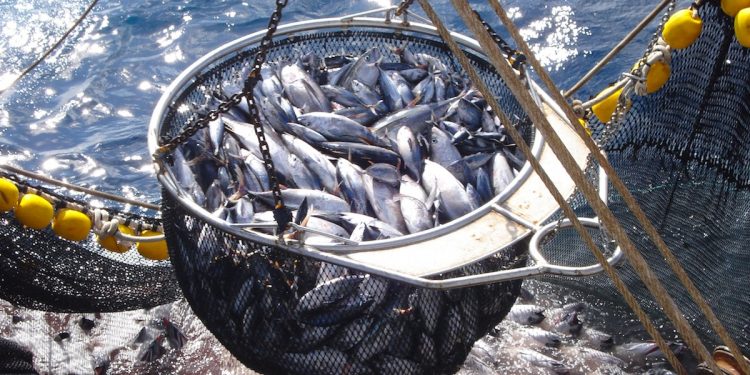A study conducted by Deloitte and released by the Spanish tuna fleet acting under the Europêche banner finds that for the first time sustainable sourcing has become a more important factor than price for Europeans shopping for seafood.
According to the study, this factor ranks fifth in importance for European consumers, with a score of 3.8 points, as opposed to 3.7 points for price. The leading factors are product freshness (6.8 points), product flavour and health benefits (both with 6.3 points) and ease of consumption (5.3 points).
According to the Organisation of Associated Producers of Large Tuna Freezers (OPAGAC), this study, which looked at a sample of over 11,000 consumers at food retailers, reveals a more demanding stance on illegal fishing and in favour of social and environmental sustainability.
On 30th April, European fishing industry body Europêche asked the European Commission to revise its criteria on importing fish caught by Asian fleets.In the case of tuna (one of the products Europeans consume the most), Asian imports may sometimes be entirely exempt from import duty through tariff quotas. The EU imported 79,500 tonnes of tuna from China last year, accounting for 53% of the tuna consumed in Europe, as opposed to 5% in 2012.
75% of European consumers said their shopping habits had changed to favour socially and environmentally responsible fishery products over the last two years, and of that percentage 12% said they consume only responsibly fished products, 35% said they have started to do so, and another 35% said they did so with certain categories of products. Spanish consumers are on the forward end of this trend. For example, the Spanish shoppers who have switched to responsibly sourced products outnumber the French by 3% (76% as opposed to 73%) and are an entire percentage point ahead of the European average.
A further significant point of the study is consumers’ willingness to pay more for sustainable, socially responsible products. Again looking at the case of Spain, 71.5% of consumers say they are willing to pay more, and of these 50% would accept a higher cost as long as it is less than 5% higher, and 37% would accept a price 5-10% higher.
Pressure on distributors
The study found that consumers are willing to switch the retailers they use for their regular shopping needs if that will give them a wider range of socially responsible, sustainable products. A surprising 90.5% of Spanish consumers said they would switch stores. Of this total 32.5% would make the change permanent, and 58% would switch occasionally. Here too Spanish consumers outnumber similarly-minded French shoppers, 31% of whom would switch stores permanently, and 48%, occasionally.
‘The study’s findings show that the European fishing community and citizens themselves have a clear idea of the value of sustainability and respect for human rights in the fishing industry. Now we just need politicians and European distributors to become aware,’ said OPAGAC director Julio Morón.
‘Facts like the ones that have come out in the last few days, about deceased crew members thrown overboard from Chinese fishing vessels and observers who have died on board, are attacks against basic human rights, and the idea that these vessels’ products circulate freely through the European market and are stacked in the aisles of shops and stores in the Old Country for people to eat is absolutely unacceptable.’
There are at present several investigations under way into alleged crew abuse on fishing vessels belonging to Asian fleets, plus homicide investigations concerning vessels flying Chinese and Taiwanese flags.
On 4th June last, the Spanish fishing industry, through Spanish Fishing Confederation (CEPESCA), declared its support for the Indonesian government’s condemnation of longline vessels under the Chinese flag that have been accused abuses on board. These vessels are officially registered with the recipients of Indonesia’s complaint, the two regional fisheries organisations that manage tropical tuna fisheries in the Pacific.
The Indonesian government filed the complaint because the four crew members who died on board these vessels and were thrown overboard were Indonesian citizens. A criminal investigation into the matter has been opened.
An investigation has also been opened into a tropical tuna fishing vessel from Taiwan, after an observer who boarded the vessel with the job of verifying compliance with fishing rules and regulations was found dead with clear signs of violence. For this reason, the owner of the vessel’s MSC certification, Pacifical, has suspended the certification until the investigation can clear up the facts, which suggest alleged homicide, according to the latest information.









